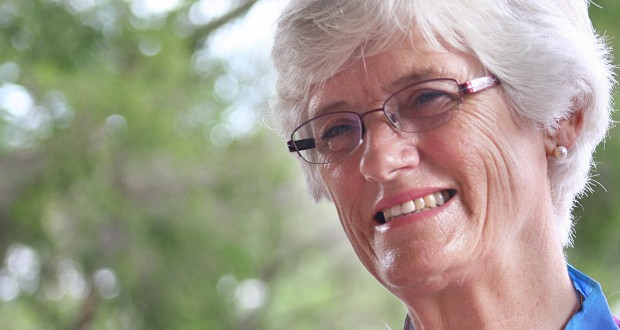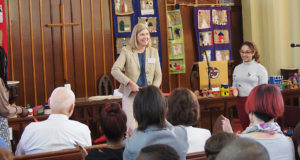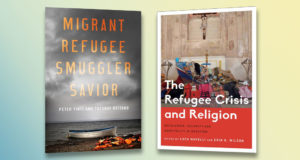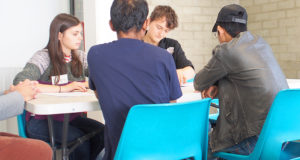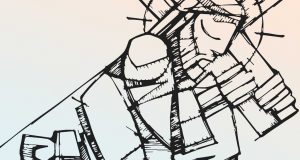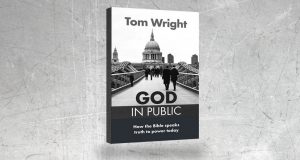Like a voice crying in the wilderness, Frederika Steen AM won’t be silent about Australia’s treatment of asylum seekers and refugees. Dianne Jensen reports.
“I have looked into their faces, I know their names and I have heard their stories of suffering. What else could I do but speak out?”
Refugee advocate Frederika (Freddie) Steen doesn’t mince her words when it comes to speaking out about the treatment of the men, women and children who arrive by boat to seek sanctuary in Australia. She says it’s cruel, unjust and un-Australian.
Freddie’s longstanding service to the refugee and migrant community was recognised in the 2014 Australia Day Awards when she was admitted as a Member (AM) in the General Division of the Order of Australia.
Previous awards include Canberran of the Year (1984), a Centenary Medal (2001), the Paul Cullen Humanitarian Award (2003) and the Pride of Australia Fair Go Medal (2007).
Freddie spent 12 years in the Commonwealth Education Department, followed by 17 years in the Immigration Department. Her roles included Migrant Women’s Coordinator, Director of Settlement Services in Brisbane and Chief Migration Officer in the Australian Embassy in Germany.
After her retirement in 2001 she became a volunteer at the Brisbane-based Romero Centre refugee support and advocacy hub. There Freddie encountered the tide of misery caused by the introduction of Temporary Protection Visas (TPVs), as busloads of frightened and disoriented refugees were offloaded at the small community-funded centre.
With growing outrage, she heard first-hand the anecdotes of torture and oppression, and the frantic pleas of those with family left behind. Underlining the suffering was what she describes as the “hell on earth of uncertainty” caused by the temporary nature of the visas.
She began telling their stories to the Australian community. As information officer for the Romero Centre, Freddie spoke at hundreds of meetings, workshops, schools, churches and service clubs and became recognised as a vocal public commentator on refugee issues.
The kindness of strangers
For the Dutch-born Tasmanian, the narratives of oppression and exile spoke straight to her family experiences in war-torn Europe.
Freddie Steen was born in Nazi-occupied Holland. Her resistance-fighter father and his young son and pregnant wife were in hiding, given sanctuary by a Christian family.
“I was born in the lounge room of a farmhouse. Dad was sitting there at the window with a revolver in his lap in case there was trouble.”
The family were betrayed to the Germans soon after Freddie’s birth, when a neighbour spotted the nappies on the washing line. The Steens escaped in the nick of time.
The constant anxiety and fear during those years left an indelible mark on all of them, recalls Freddie, especially her father.
“Now we know and give it a name—post-traumatic stress disorder—but there’s no doubt in my mind that my father was badly scarred by his experiences. He had lost trust in people and he was subject to dreadful headaches always.”
After several unsettled years in post-war Holland, the Steens joined with a group of seven Christian families who migrated to Tasmania in 1950. They were welcomed by the small rural community, and took up the opportunities provided by their new country to make a good life.
That experience of being offered refuge in a time of desperate need, and the chance to rebuild their lives in a new country, still fuels her passion for justice and fairness.
Return to exile
Along with many refugee advocates, Freddie is appalled at the revival of the punitive policies which have left thousands of people living in limbo on bridging visas, most unable to work, while many others languish in detention centres here and overseas.
The decision by the former Labor government to re-establish offshore processing on Nauru and Manus Island (PNG) was “extremely painful” she says.
Freddie had participated in the campaign which helped bring an end to the Pacific Solution implemented in 2001 by the Howard government, with the last 25 detainees leaving Nauru at the end of 2005. The policy was largely dismantled by Kevin Rudd in 2008 but reintroduced by Julia Gillard in 2012. A new policy on boat arrival deterrence, Operation Sovereign Borders, was launched by the Coalition government in September 2013.
“It weighs heavily on my heart that at the moment we have more than 30 000 people living in our community who took that dangerous journey, which is traumatic in itself, of escaping their country. To go all that way through foreign places and get on a boat and survive a boat journey, and then you get at this end and you think you have hit freedom and they lock you up!”
The harsh policy is essentially “a re-badging of that fear of the Yellow Peril coming from the north by boat”, says Freddie, implemented under a cloak of secrecy.
“The majority of Australians do not know that there are women in the detention centre in Brisbane who are awaiting the birth of a child, some of whom are separated from the fathers of their children because the husband was left on Nauru. These mothers and babies will be sent back to Nauru where they were living in tents where the temperature soars to 45, 50 degrees.”
Freddie is appalled by a recent directive by Immigration Minister Scott Morrison that refugees who arrive by boat will be given the lowest processing priority when they apply for family reunions, applied retrospectively to all permanent visa holders.
“This is so divisive of families. I’m an expert on settlement services, having worked in it for a heck of a long time. Until family is reunited and they are focused on here and not over there, people do not settle well. They cannot, they are divided in their loyalties and in their attention and in their emotions.”
Called to justice
Although officially retired from her role at the Romero Centre, Freddie continues to act as an information portal and public speaker on refugee and asylum seeker issues. Silence, she says, is not an option.
“I have journeyed with modern day saints, religious and secular, and forged friendships with people who share my abhorrence of injustice and cruelty. For Christians, for me, there is no escaping that this is about the rights of God’s people.”
Freddie currently attends Indooroopilly Uniting Church in Brisbane, and is involved in the new welcome hub for refugees and asylum seekers set up in partnership with the Multicultural Development Association.
She lives with her partner, Art, and has three step-daughters and five step-grandchildren.
 JourneyOnline
JourneyOnline
